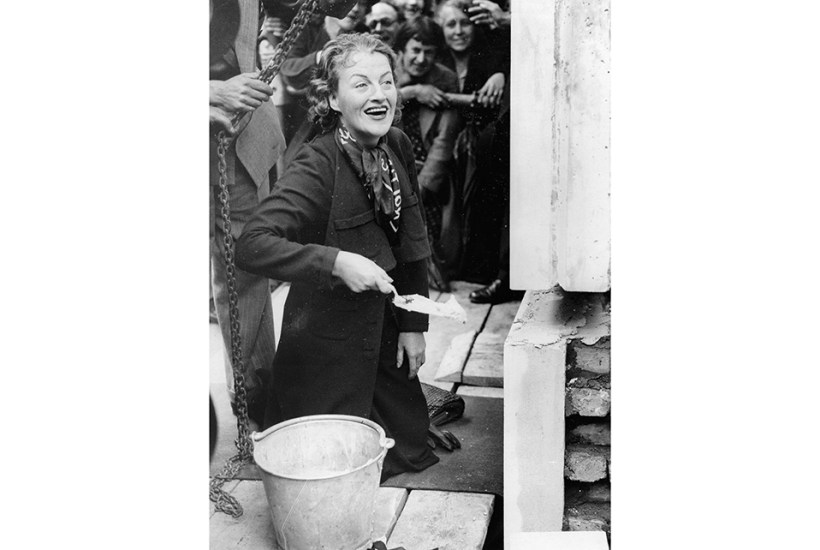Simon Heffer is the supreme Stakhanovite among British writers. Where the original Stakhanov moved 227 tonnes of coal in a single shift, within the past decade Heffer has produced four massive volumes of modern British history, each little less than 1,000 pages. Alongside them he has edited three equally voluminous diaries of the waspish socialite MP ‘Chips’ Channon, as well as writing regular reviews and columns. Hats off to the master!
In this latest and final volume of his tetralogy chronicling the British century between Queen Victoria’s accession in 1837 and Neville Chamberlain’s reluctant declaration of war on Germany in 1939, Heffer once more treats us to his vast knowledge and trenchant opinions on almost every aspect of the nation’s state, from high politics to crime and popular entertainment. It is an astonishing achievement of narrative history, and if it has an old-fashioned feel, it’s in the best sense of that phrase.
The author is a political animal with strong cultural interests, and while the bulk of this detailed work concerns the day-to-day struggle for control of the country at a crucial moment of change, he never neglects the parallel worlds of music and literature – devoting many pages, for example, to the fairly obscure writer Humbert Wolfe, and several more to one of his heroes, the composer Ralph Vaughan Williams.
Each volume of these histories has an overarching theme – the ‘arrogant swagger’ of the Edwardian era, for instance, masking a deep anxiety about the future of British power. The narrative arc of this book explores how the country was dragged kicking and screaming into fighting a second world war soon after the first had left a bereaved nation firmly wedded to pacifism.
Heffer peppers his prose with extracts from the diaries and letters of contemporary witnesses, including Virginia Woolf, Maynard Keynes and the eccentric novelist John Cowper Powys. These illustrate how the statistics he marshals on every page affected people at the time, though members of the Bloomsbury set were hardly ordinary folk.
We usually view the interwar period as the roaring 1920s – girls with bobs dancing the Black Bottom – giving way to the grim 1930s: unemployment and hunger marches under the deepening shadow of war. Heffer presents a more nuanced picture, reminding us that for every Jarrow marcher beset by jobless near-starvation, there was a southern suburb enjoying ever-rising levels of prosperity and increasing leisure time filled with weekly visits to the cinema or lido.
The iconic figure who bestrides these two Britains is Gracie Fields, the Rochdale lass who sang her way from the music hall to the silver screen and ended her days in the lap of luxury on Capri. ‘Our Gracie’ not only gives Heffer his title, but epitomises for him the warm, resilient spirit of the common people who endured every hardship and injustice inflicted on them but managed to survive in some style.
Although Heffer writes from a High Tory perspective, he is more properly a classic Liberal. His 19th-century political hero is the upright anti-imperialist Gladstone rather than the slick chancer Disraeli. As such, he keeps a compassionate eye on the have-nots comprising the majority of the population, and deeply disapproves of unprincipled politicians such as Lloyd George, even when he successfully negotiates Ireland’s independence.
The book culminates with the premiership of Neville Chamberlain and the run up to war. In the great debate on appeasement – whether the high-minded PM was a far-sighted statesman striving for peace while preparing for war or a naive dupe who allowed Hitler to lead him by the nose – Heffer is scrupulously fair. Using aircraft production figures and the like he proves that Chamberlain followed a contradictory policy of rearmament while hoping against hope that the Führer could be persuaded to take the path of peace. In the words of one of his ministers, Chamberlain ‘walked into the thieves’ kitchen thinking it was the Carlton Club’. For his part, Hitler thought the PM a schlappschwanz (limp dick).
For those with the time and stamina to ascend this mountain of words, Heffer’s tetralogy offers a commanding view of a century that saw Britain at the summit and then beginning its descent. I think the word is ‘magisterial’.
Got something to add? Join the discussion and comment below.
Get 10 issues for just $10
Subscribe to The Spectator Australia today for the next 10 magazine issues, plus full online access, for just $10.
You might disagree with half of it, but you’ll enjoy reading all of it. Try your first month for free, then just $2 a week for the remainder of your first year.








Comments
Don't miss out
Join the conversation with other Spectator Australia readers. Subscribe to leave a comment.
SUBSCRIBEAlready a subscriber? Log in